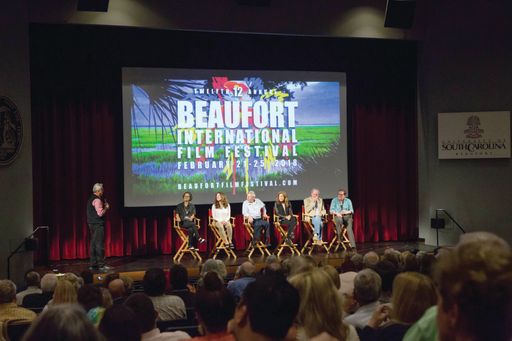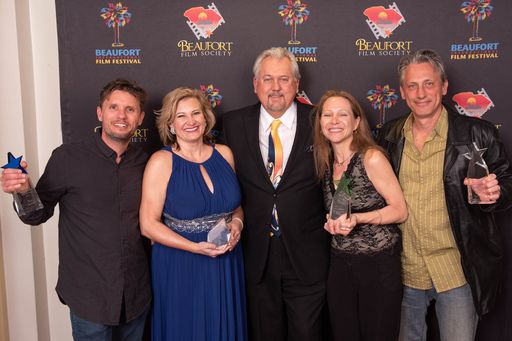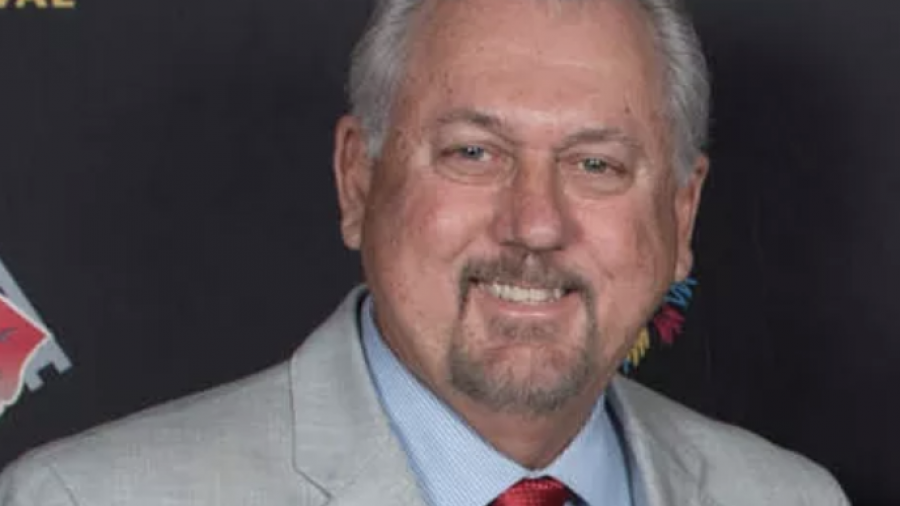Written by Jonah Azurin
Ron Tucker, president of Beaufort Film Society and co-film festival director of Beaufort International Film Festival (BIFF), and I talked about his passion for films and how that led to Beaufort’s Film Society and BIFF.
How did you get into film production?
It started in 1992 when I retired from the Marine Corps. After 22 years of serving in public relations and administrative positions, I thought I’d put that experience to use. I started a company called Sandbar Productions that would offer location management services to production companies that were shooting movies and commercials in Beaufort, South Carolina at the time. From 1979 to 1999, Beaufort was considered the Film Capital of the South with over 20 major motion pictures filmed here, such as The Big Chill (1983), Forrest Gump (1994), and The Prince of Tides (1991). That really put us on the map. I soon learned that income from this business wasn’t steady so I decided to start producing my own films through my production company known as Good-To-Go Video at the time, and now called Warrior Spirit Entertainment. I said, “I’ll just produce what I know,” and that led to producing documentaries about the U.S. Marine Corps. We produced programs like The Making of a Marine, Fierce Pride in Country & Corps, and [from] 1994 until today.
How did BIFF get started?
I still had a desire to be involved with the film industry because it had changed and films were no longer coming to South Carolina. The lure of great locations gave way to economics and tax incentives and in recognizing that some action was needed to get filmmakers back to Beaufort, in 1999 I approached Beaufort County about establishing a regional film commission for our area. At that time, no one seemed interested so it would be another four years before I would reintroduce the idea. I made an appeal to the Board of Directors and they were sold. In 2004, the Beaufort Regional Film Commission was established with the sole purpose of reviving the once flourishing film industry in our region. I was appointed the Chairman of a 16-person commission. Soon, I was sent to Las Vegas to attend the Association of Film Commissioners International (AFCI) Cineposium where I would become a certified film commissioner. It was while attending the conference that I met the film commissioner for West Virginia who planted the idea in my head to start a film festival. When I came back to Beaufort, I pitched the idea to the board and then planning began. It would take another 3 years before we launched our first festival in 2007. Not knowing what to expect, I was thrilled to have about 500 people attend that first year.

Image from the 2019 Beaufort International Film Festival.
Did you always have a passion for films?
Growing up I watched everything from Westerns to films about the Army, Navy, Marine Corps, and things of that sort. At movie theatres, I watched until the very end of the credits and I was usually the last one there. I was so curious and was asking questions like, “What’s a ‘grip’? What does a ‘Boom Operator’ do?” While serving in the Marine Corps, I had the opportunity to serve as spokesperson for a lot of occasions such as doing radio and television spots for numerous Marine Corps events. Through the years, I’ve watched almost every Academy Awards Ceremony and the Emmys, too. I just love the process of filmmaking and I feel blessed to be a small part of it through our film festival.
How is BIFF navigating during the pandemic?
We were one of the last film festivals to have in-person attendees before the lockdowns and quarantines began and we are actually planning to have a restricted in-person gathering for this year’s film festival. We are limiting our number of attendees and have strict protocols for everyone attending to be as safe as possible. It was not an easy decision to go ahead with plans for the “in-person” film festival. However, we learned this past October when we premiered a feature film that my wife and I co-produced with Rareform Pictures, Stars Fell on Alabama, that we could safely pull off a COVID-Cautious event if we adhered to strict safety protocol and “followed the science,” i.e. Social distancing, masks, sanitizers, etc.
What is the film selection process like for BIFF?
Filmmakers submit their films to BIFF through the film festival marketing site, FilmFreeway. There is a small entry fee and once [the filmmakers] submit their materials, we have three juror levels. The first level is reviewed by my wife Rebecca Tucker, co-film director of BIFF, and myself. We basically watch all the films we received then narrow them down using exactly the same scoring system that our other jurors will use; those meeting the established minimum score will be forwarded to the next level. Once the second set of jurors watch and score the films, their scores are tallied and those scoring the highest in each category are named Finalists. Those Finalists move on to the third set of jurors who ultimately decide the winners in each category. Once the Finalists are determined, I try to personally call the filmmakers to give them the great news. It’s a little extra effort, but I want the filmmakers to feel appreciated and thank them for submitting. That’s when the “southern hospitality” officially begins.
What are ways BIFF is keeping their audience engaged during this time?
In January, there’s a lot of media buzz about BIFF since it usually begins in February. The whole town is electric. After the film festival, we try to have meet-and-greets with the Beaufort Film Society members. Then in April and May and later again in October and November, we have a program called “Shorts At High Noon” referencing the movie from 1952. It’s an event where we pick the best of the best short films from all our previous film festivals starting back in 2007; we schedule each viewing for every Wednesday at noon where we play three or four short films, whatever will fit in their lunch hour. Also, since Beaufort has a large retirement population, we offer classes to our local university’s Continuing Education Program through the Osher Lifelong Learning Institute (OLLI). We keep the community engaged and thinking about film all year long. The past year has been a challenge, but we have tried to use all social media resources and the technology offered through Zoom to keep our audience engaged. Let’s all hope that in 2021 we can all get to a stage of “new normal”. Let’s make movies.
Connect with Ron Tucker on LinkedIn and follow #bftfilmfest on Twitter, Facebook, and Instagram for related news and updates.

Ron Tucker with winners from a previous BIFF event.

